Un/Social
Un/social
outdoor performance
62 Performing Arts Festival, Shanghai, 2019
photo credit: Alina Kochetova
[
[outdoor performance]
The performance delves into the organizational structures that have shaped human civilization throughout history. For millennia, our ability to communicate has been our primary survival tool, enabling us to plan, create, and sustain complex systems.
From the construction of a spaceship to the production of a Game of Thrones episode, effective organization is necessary to allocate resources and synchronize schedules. Over time, humans have continually refined our communication methods—from sign language to speech, and later, to writing. The written word expanded the range of communication, bridging time and space. Until recently, these advancements in communication were solely between humans.
However, the rise of information technologies has introduced a new player into our dialogue—computer algorithms and AI. Today, as our organizational structures grow in complexity, seen as vital for survival, we increasingly rely on technology, often at the expense of human-to-human communication. Yet, what has been central to our humanity for thousands of years cannot be abandoned without fundamentally altering what makes us human. If we forsake this defining characteristic, can we still call ourselves human?
Collaborators
David Hampson (sound), Anastasia Potievskaya (performer), Wang Yueming (performer), Yu Xizi (performer), Yuan Yang (performer).
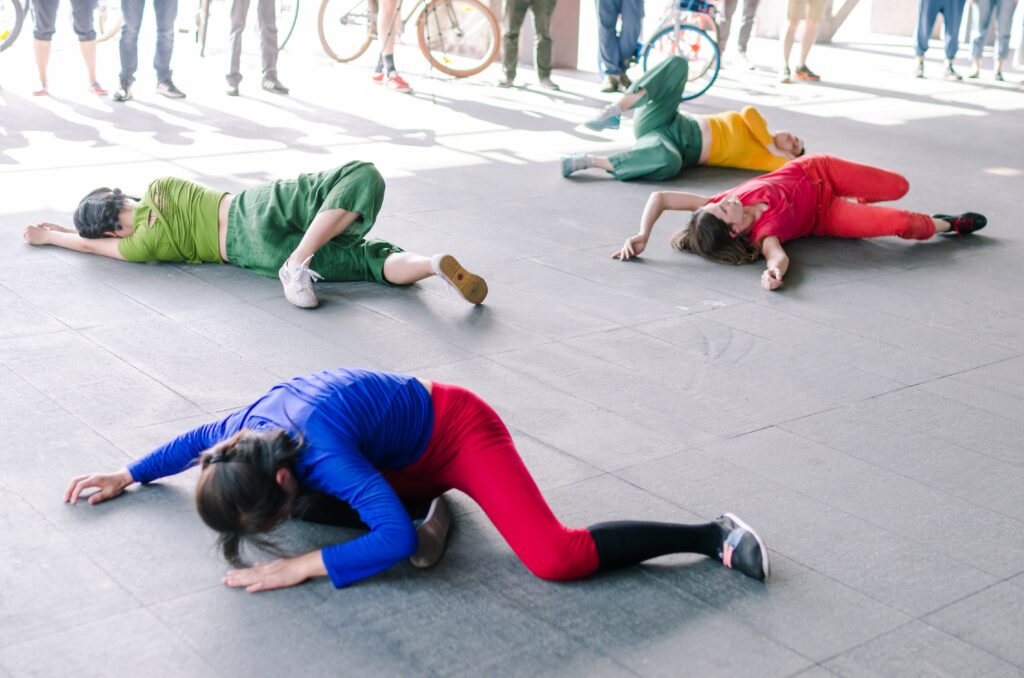
photo credit: Alina Kochetova
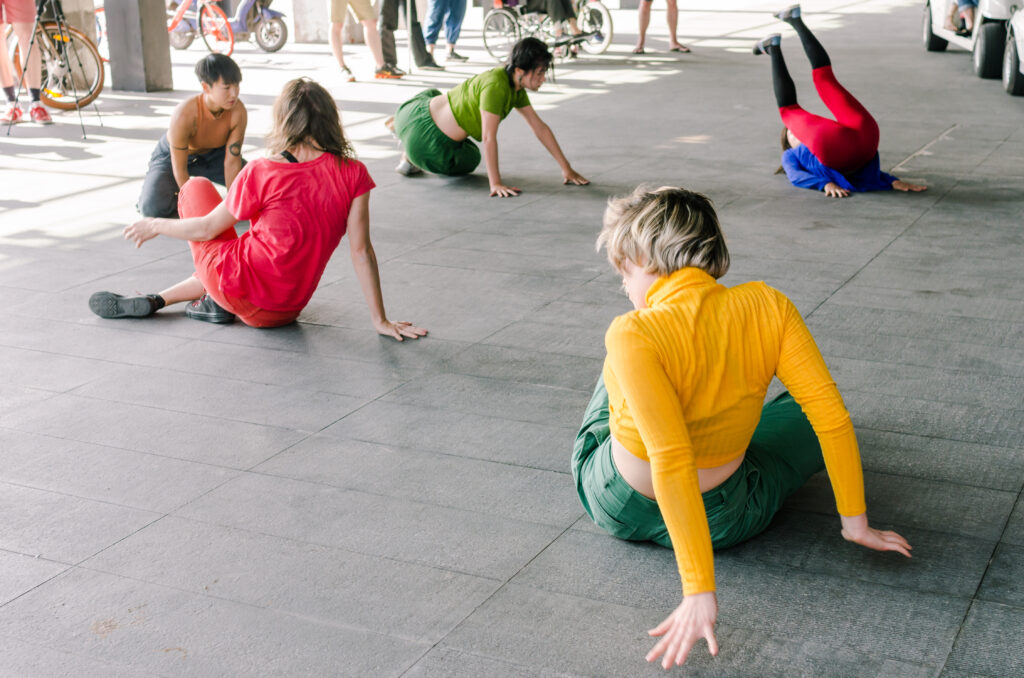
photo credit: Alina Kochetova
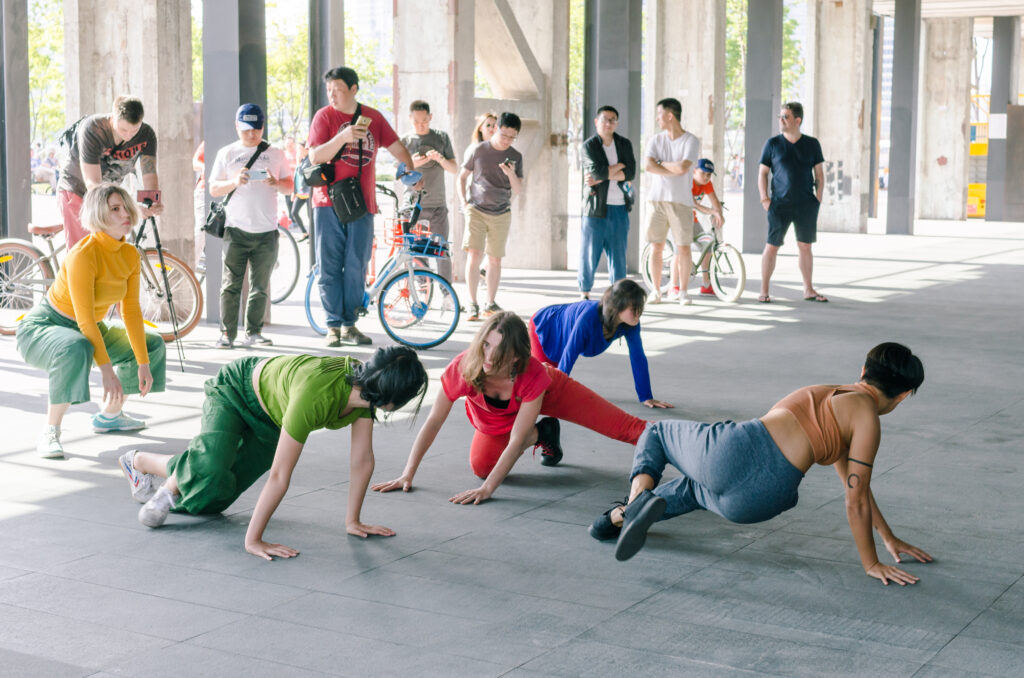
photo credit: Alina Kochetova
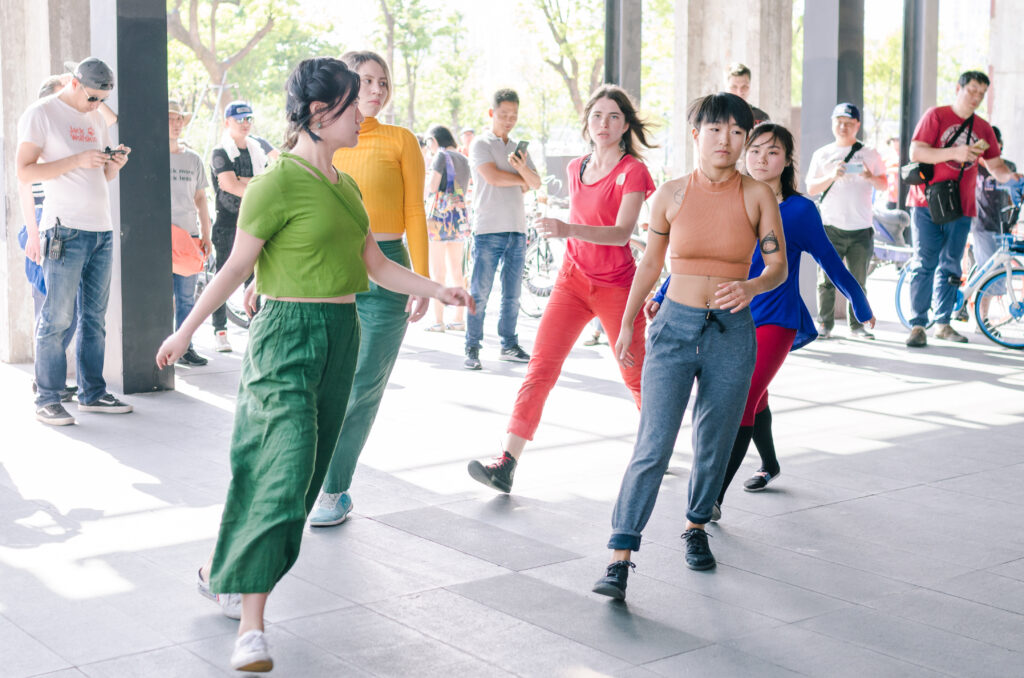
photo credit: Alina Kochetova
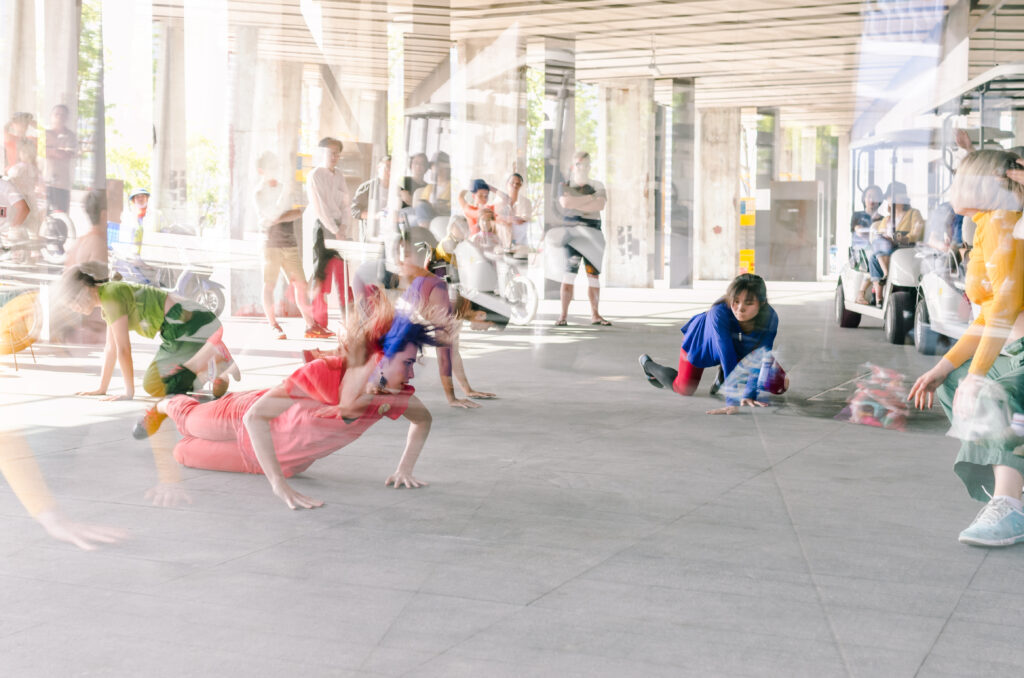
photo credit: Alina Kochetova

photo credit: Alina Kochetova

photo credit: Alina Kochetova

photo credit: Alina Kochetova

photo credit: Alina Kochetova